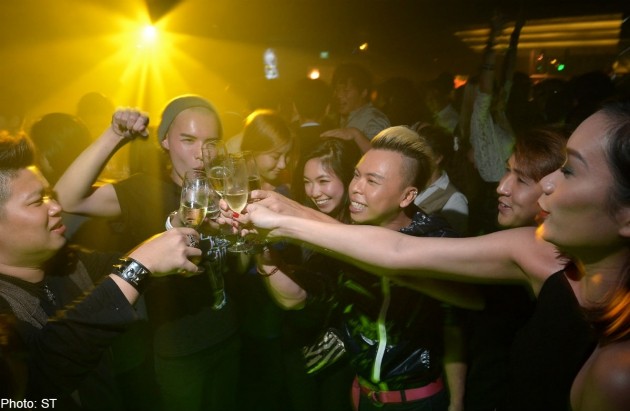A measured battle against the bottle

SINGAPORE - At the Singapore Management University where I teach, students organise Starry Night, an energy-laden outdoor music festival that attracts close to 1,000 young people from all walks of life.
It should surprise no one that alcohol is available to these party revellers. But there has been no significant trouble.
How Singapore deals with the misuse of alcohol and public drunkenness has taken on greater urgency following December's Little India riot. The Committee of Inquiry determined that a contributory factor to the mayhem was excessive drinking.
There are legitimate and pressing concerns to justify the close scrutiny of the existing regime on alcohol sale and consumption. We are all too aware of the social disamenities caused by irresponsible drinking in our residential heartland and in various nightspot areas.
In the ongoing official review, will the Government introduce stringent new measures to curb alcohol sales and impose broad-ranging restrictions on where and when alcohol may be consumed, like those currently in place in Little India?
Sure, there will always be a minority who abuse alcohol or lose control of themselves after a few drinks. Such irresponsible drinking is not good for them or for society.
However, alcohol abuse is not prevalent in Singapore. The Singapore Mental Health Study of 2010 showed that about 3.1 per cent of the population suffer from alcohol abuse and 0.5 per cent suffer from alcohol dependence at some point in life. But we must not let our guard down.
As drinking is a potentially socially contagious phenomenon, how is drinking behaviour learnt and transmitted in Singapore? How can we harness social pressure to design purposeful interventions that encourage responsible drinking?
The authorities could leverage market research data to understand the drinking culture and norms here, and generate nuanced regulatory responses to alcohol sale and consumption. The insights gleaned from such research could aid our understanding of the dynamics of the drinking culture here.
The key policy challenge in the review process is to tackle the problems caused by those who drink irresponsibly while catering to the vast majority in our vibrant global city who embrace "common-sense drinking".
The imperative is to engender a healthy respect for and a culture of responsible drinking.
To that end, we need smart and progressive regulations that promote responsible drinking, and resist the temptation of simplistic solutions. In calibrating our measures, care must be taken to not focus on the symptoms of problem drinking, but instead to tackle the root causes. This is an issue where everyone - from community leaders to alcohol producers and marketers, as well as nightspots and coffee shops where alcohol is sold and consumed - needs to be part of the solution.
All stakeholders should work hand in hand in reaching out effectively to the community. Problem drinking cannot be solved by the Government alone. Reaching out to youth and young adults is essential. Have we engaged them sufficiently in the current consultation process? Can we empower stakeholders, including young people, so that the message and ethos of responsible drinking is not only targeted at the consumer but, instead, becomes a shared value?
Stakeholders must feel that they have a vital role to play in the formulation and implementation of this much-anticipated regulatory change.
Securing the necessary cognitive and affective buy-in for the proposed regulatory regime is half the battle.
Singaporeans' relationship with alcohol is, by and large, pragmatic, mature and responsible. This culture of responsible drinking is a valued and enjoyable part of life for the vast majority.
Recent research demonstrates that peer beliefs - especially among adolescents and youth - influence alcohol use both directly and through their effects on how individuals think about drinking.
Our determined response to the pockets of problem drinking should not overreach. A clampdown on sale and consumption of alcohol is not a silver bullet. Instead, it could potentially damage our hard-earned reputation for smart, calibrated regulation. A sustainable regulatory framework engenders positive behavioural change and nurtures a healthy understanding of what alcohol can do, including influencing deviant behaviour.
Hence, it is crucial that a multi-stakeholder approach is adopted as the Government crafts the new regulatory framework - one which seeks to promote collective responsibility in engendering the desired drinking norms and habits.
Even as the authorities work towards tightening the lax aspects of the current alcohol regime, a responsive, innovative regulatory policy can engage the real concerns of problem drinking.
More than that, it will reinforce our standing for innovative regulation as a cornerstone of our long-term blueprint for cultural and economic growth for a global city - and a smart one at that.
myp@sph.com.sg

Get MyPaper for more stories.